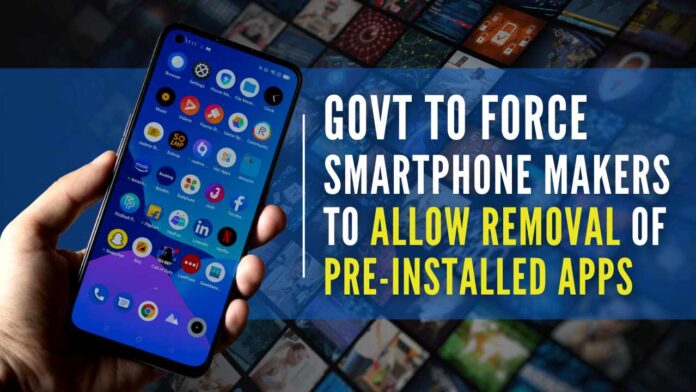
Can’t remove your pre-installed apps? India is taking action
Smartphone brands in India may soon be forced to provide an option to let users delete pre-installed apps on the device. The crackdown on pre-installed apps, commonly known as bloatware, is part of a proposed plan by the Indian government, which may also mandate the screening of major mobile operating systems.
As reported by Reuters, the IT Ministry is considering these under the new rules amid concerns about spying and abuse of user data. Notably, the government is also working on a made-in-India BharOS mobile operating system that would provide a similar option to delete pre-installed apps.
The report notes that the new rule would mandate new smartphone models to be checked for compliance by a lab authorized by the Bureau of Indian Standards (BIS) agency. It will likely be done to ensure users’ security and see if the option to let users delete pre-installed apps is in place.
The government will reportedly give smartphone brands a year to comply once the new rule is effective. It is unclear when the new IT rule by the Indian government will come into effect.
An official told the news agency that pre-installed apps pose a threat to national security. The report quoting the official, states, “Pre-installed apps can be a weak security point and we want to ensure no foreign nations, including China, are exploiting it. It’s a matter of national security.”
A confidential government record reportedly shows that the government has discussed the proposition with smartphone makers, including Xiaomi, Samsung, Apple, and Vivo — the biggest smartphone brands in India.
Currently, most smartphones, whether they are Android or iOS-enabled iPhones, come with proprietary and third-party apps. While iPhones allow users to delete most apps, Android limits the removal of Google-made apps like Gmail and Chrome. Brands like Samsung, Xiaomi, and others do not let users delete their proprietary apps such as Camera, Samsung Pay, Hot apps (which includes a suite of productivity apps), and more on top of Google apps.
If the new IT rule comes into effect, it would be a big blow to brands’ revenue. Many Android brands like Meta and Snap also have partnerships for their respective pre-installed apps. The report claims that European Union regulations require allowing the removal of pre-installed apps, though it does not have a screening mechanism to check for compliance like India is considering.
The Indian government has been ramping up efforts to prevent spying through apps on phones. The government has already banned over 300 Chinese apps, like TikTok and WeChat, to safeguard users’ data. The government is already working on an indigenous mobile OS, dubbed BharOS, which won’t include any pre-installed services or apps. BharOS may also help Indian manufacturers reduce their dependence on foreign operating systems for smartphones.
However, smartphone makers and developers have argued in the past that their proprietary app safeguards users’ privacy. Google even recommends users download apps via its Google Play app store for security purposes. On the other hand, Apple does not let users download apps from third-party platforms to ensure privacy.
[With Inputs from IANS]
PGurus is now on Telegram. Click here to join our channel and stay updated with all the latest news and views
For all the latest updates, download PGurus App.










